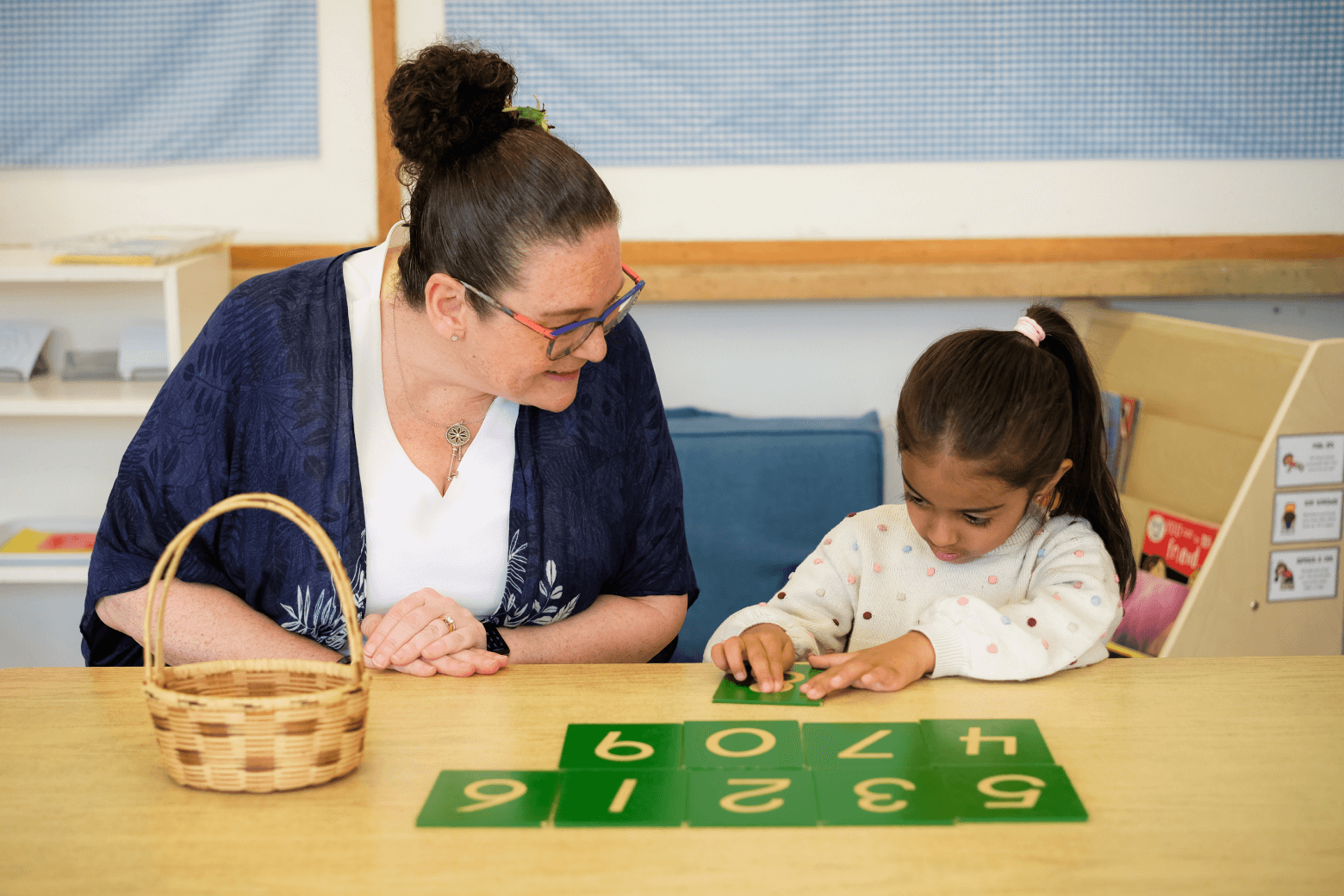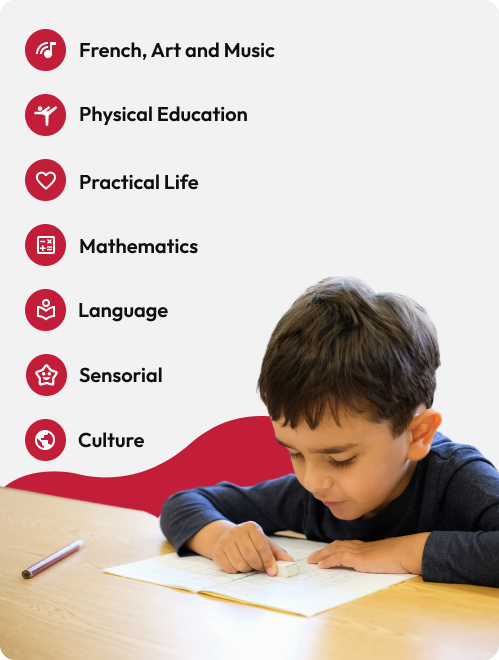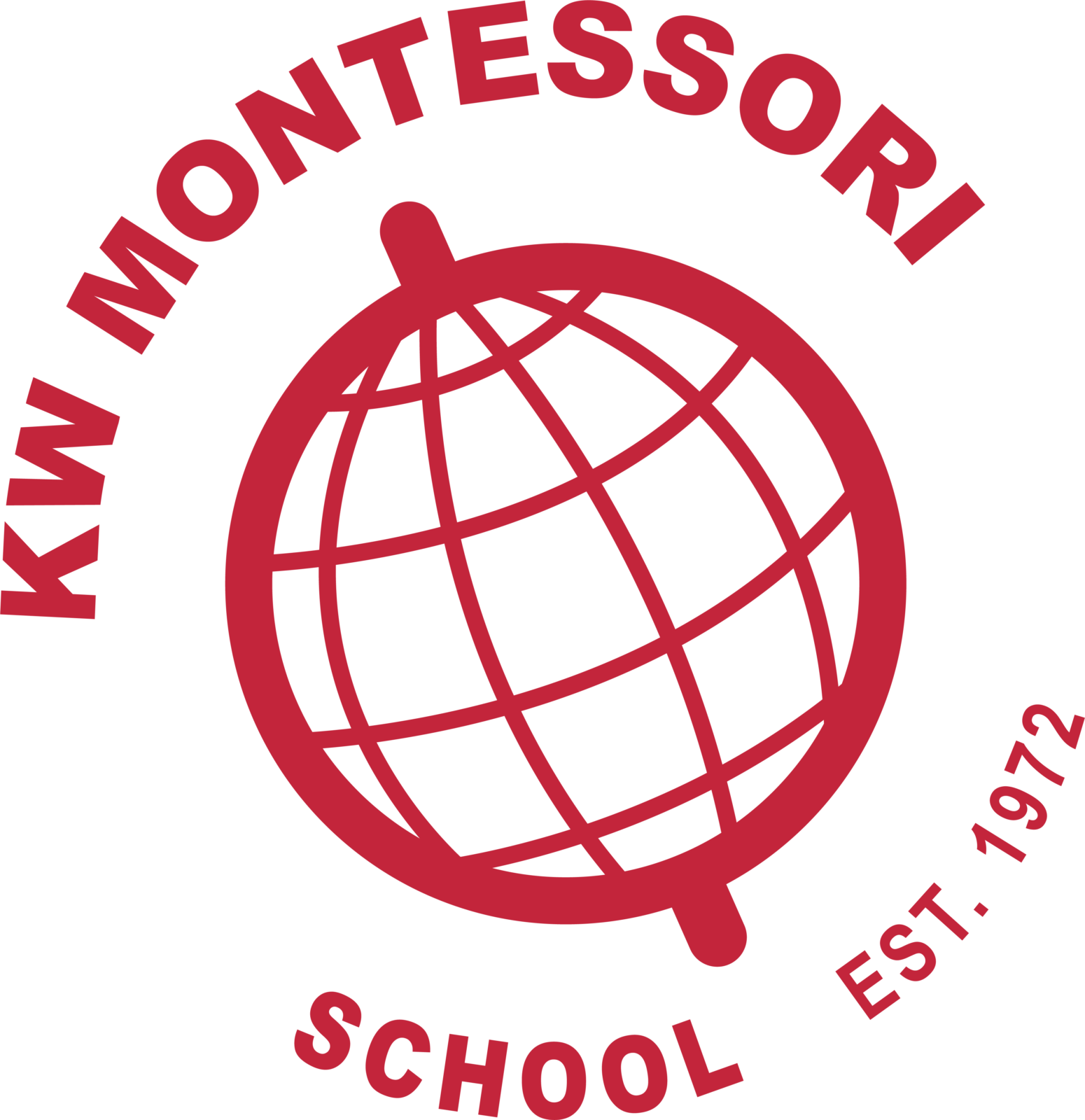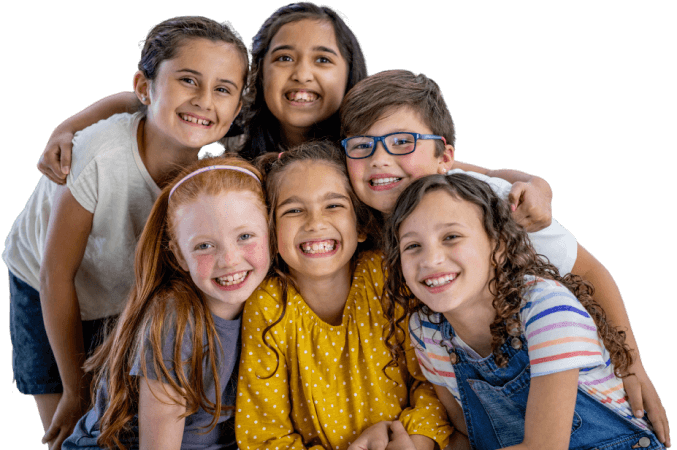
KW Montessori Casa Programs
Empowering your child with skills that last a lifetime
Casa Program
Nurturing a lifelong love for learning
Our 3 year Casa program is designed to follow your child’s individual needs and help them develop social skills, concentration, independence, and self-confidence. Our program runs 5 days a week with half-day and full-day options, following a school year calendar from September to June.
The Montessori Casa program is based upon a balance between freedom and structure. Teachers present lessons individually as well as in small groups. Students are then able to choose their own ‘work’, while they are encouraged to explore and experiment so that their curiosity is both challenged and rewarded. Through repetition of the materials, students develop and refine their skills.
Our Casa program is licensed under the Ministry of Education and follows the requirements of the Child and Early Years Act (CCEYA).

Classroom Areas
Practical Life
Practical Life activities foster independence, concentration, confidence and work habits. They also promote and develop fine and gross motor skills.
Sensorial
Sensorial materials develop and refine the senses. Children classify, sort, and discriminate, refining their skills through exploration and repetition.
Language
Phonics is the basis of the reading program. Reading becomes a natural process as students move through each stage. Pre-writing exercises lead to cursive writing and printing, from words to sentences.
Mathematics
Concrete math materials introduce various mathematical concepts. Students begin with numerals and quantities, leading to work with place value and the base-10 decimal system. Students develop a solid understanding of numbers and their patterns.
Culture
Students develop an understanding, appreciation and respect for all living things in our diverse world. This area includes History, Geography, Botany, Zoology, and Science.
French
Children receive French instruction 3 times per week. They are introduced to French vocabulary and conversation through hands-on activities, songs and games.
Art
Art is incorporated into materials found on classroom shelves. Colouring, painting, and other media exploration are regular activities in the casa classroom.
Music
Through moving, singing, and listening, music is part of daily circle time. Children also have a monthly music lesson taught by the school’s music teacher.
Physical Education
Casa students have Physical Education once a week. Children develop various gross motor skills through games and activities. Unstructured play is provided during outdoor time over the lunch hour.

Enrich your child’s educational journey at KW Montessori School! Fill out an Inquiry form today.
Inquiry Form
